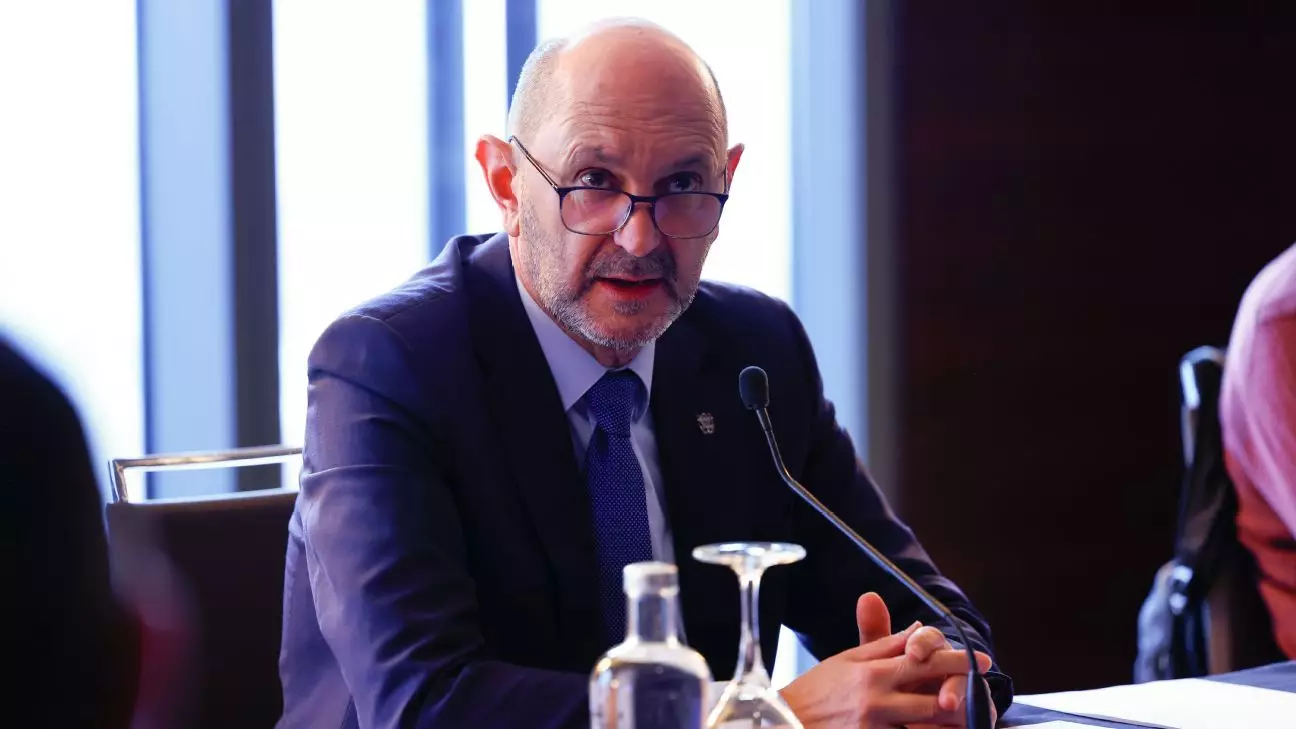Rafael Louzan’s election as the president of the Royal Spanish Football Federation (RFEF) marks a pivotal moment in Spanish football, particularly as this decision aligns with Spain’s selection to co-host the 2030 World Cup. Louzan’s ascension comes on the heels of FIFA’s announcement that Spain will share the limelight with Morocco and Portugal, experiencing a broader global platform that includes additional matches in South America. The timing of this election is crucial, as FIFA emphasized the importance of stable governance in Spain’s football landscape.
At 57 years old, Louzan navigated a competitive landscape to become the new face of the RFEF, overpowering opponent Salvador Gomar. His experience is notable, representing the Galician Football Federation and having served on the RFEF’s executive committee since late 2019. Louzan’s term, earmarked for four years, introduces hope that he can stabilize the federation during an era marked by turmoil. However, his ascent is not without contention.
Although Louzan emerges victorious, his candidacy has raised eyebrows due to a significant legal cloud hanging over him. A provincial court has imposed a seven-year prohibition on him holding public office owing to alleged misconduct during his previous presidential role in the Pontevedra Provincial Council. As he battles this ruling in Spain’s supreme court, questions arise about his ability to lead effectively amidst legal scrutiny. This situation serves as a reminder of the underlying governance issues present within the RFEF.
The RFEF is effectively navigating a crisis due to a series of controversial events that have marked its recent past. The scandal involving former president Luis Rubiales, who infamously kissed player Jenni Hermoso post the Women’s World Cup victory, has tainted the federation’s image. Rubiales’ subsequent resignation and upcoming trial next year for his actions have called into question the federation’s leadership and ethical standards. This scandal was further compounded by Pedro Rocha’s suspension by Spain’s Sports Council due to a significant infraction, underscoring the urgent need for reform and stabilization within the RFEF.
The current landscape creates an arduous path for Louzan. The Spanish government’s oversight committee reflects a profound dissatisfaction with the RFEF’s previous management and further emphasizes the need for improved governance practices. FIFA’s ultimatum – to ensure the election of a new president by the close of 2024 or risk privileges related to the 2030 World Cup – adds pressure on Louzan’s presidency. As he steps into this critical position, his primary challenge will be to restore public confidence and manage the significant expectations surrounding the federation’s future.
As Rafael Louzan assumes his role as the RFEF’s president, he inherits a complex web of challenges and opportunities. His leadership will be tested, not only by his ability to navigate internal issues but also by the overarching goal of hosting the World Cup. The football community will watch closely as he attempts to steer the RFEF towards a more stable and reputable future, emphasizing honesty and integrity in governance.
